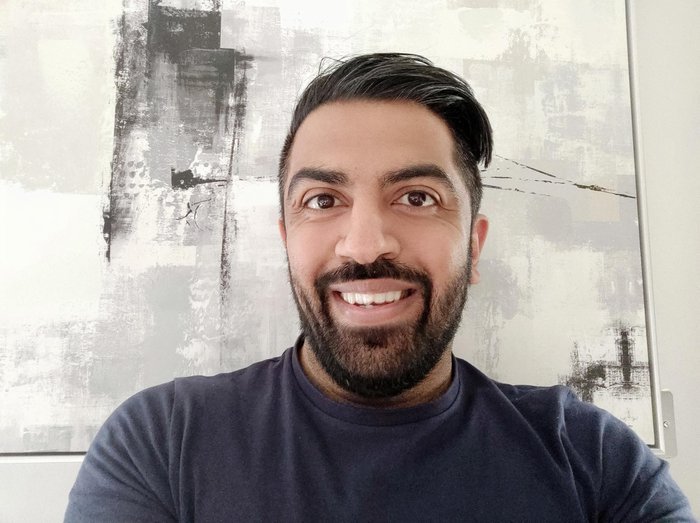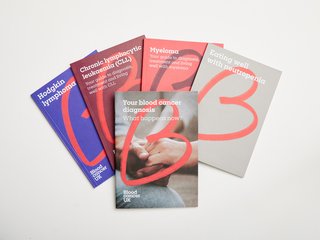Finding my own way through it
Vij explains how his diagnosis of polycythaemia vera (PV) has affected him and where he finds support for his mental health.

For information see our web pages about PV or order our new PV booklet.
I was diagnosed at the age of 39 after a long process of blood tests and checks to find a medical reason for how I’d been feeling for so many years.
I had a feeling it was bad, as the appointment letter came from the “Cancer Specialist Department,” but you never know. It isn’t always to say, “You’ve got cancer,” but to say, “We’ve checked and you’re clear.”
I had lost a sister to cancer six years earlier, but I was relatively calm. When I got the call telling me I had something called “polycythaemia vera” I honestly thought it couldn’t be that serious, as I’d never heard of it before.
I started researching online, trying to find stories from similar people – youngish, male, Asian (as that can make a difference) – to see what the outlook was like and get my head round what to expect. Apart from finding a prognosis of 2.5 years if untreated, I found nothing, which really did add to my fear.
It was only when I stumbled on the Blood Cancer UK website and read the booklet my specialist had posted to me, that things started to make sense.

Order your free guide to PV
Includes understanding PV, treatments and how to look after yourself
Why I kept my diagnosis to myself
I allowed myself time to research PV, treatments and ask questions about what the future could look like. And I decided not to tell my family and friends, which may sound crazy, especially as I’m telling my story publicly.
But my cancer was different to my sister’s and anyone else I’ve known with cancer. When you say you have cancer to people, you get stereotyped and comparisons are made. Just the label would bring back what we went through with my sister, and I couldn’t put my family through the thought of the same thing happening to their brother and son. I knew all too well what that felt like, and how things just haven’t been the same since her passing.
I know I sound like a hypocrite, keeping my diagnosis a secret while telling my story so publicly. But as much as I feel I should tell my family and stop living this lie, I am protecting them. It also means I have total control about the decisions I make, so I can carry on without labels or prejudice.
For example, would I now be “Vij,” shortly followed by, “he has cancer”? Would relationships be affected because people would expect me not to be able to do things, or die sometime soon?
Would people have to watch what they say about being happy, well and making plans for the future?
How and when would I bring it up with future employers and people I meet? Would discussion of my cancer be intensified and exaggerated as more and more people talk about me? I’ve seen this happen and it wasn’t what I wanted.
This is my cancer, and this is me you are talking about. I have rights over what gets said and what my future will be.
Carrying on as normal
Having PV means that my bone marrow over-produces red blood cells, making me susceptible to blood clots, and possibly other forms of blood cancer. Though it is not curable, it is manageable, and when regularly monitored and treated, patients can go on to lead a normal life span.
Having had experience of caring for someone with cancer, this was hard to believe! How can you have cancer and be ok?
It’s been 3 years now, and I don’t look ill, I still have my hair and no one has been any the wiser that anything is wrong with me. So much so, I feel like a fraud who’s doing injustice to other cancer patients.
I have blood tests done regularly, take medication when my levels are abnormal and have venesections (blood extraction – similar to donating blood) when my haematocrit levels are above the normal range. Fatigue and constant itching along with a few other symptoms have prompted me to adjust how much I work and the things I do, but generally I have continued as normal.
However, despite it sometimes feeling like I’m living two lives, I am not naïve or ignorant of my condition. Planning for the future, things you want to see and accomplish, does take a hit when you know you have cancer. The mental anguish can be on par with, if not worse than, the physical pain. And though sometimes I might be able to forget I have cancer, when my mind wanders or my body gives me a reminder, reality kicks in and those grey clouds start forming.
Where I get my support
Typically, after a cancer diagnosis you would share your feelings and thoughts with those around you and get support, but after making the conscious decision not to, I didn’t have this when I really needed it. But then I discovered the Blood Cancer UK online community forum and spoke to others going through something similar, if not the same, as me.
Communicating with people who just got things and were incredibly knowledgeable through their own experiences (good and bad) helped me so much.
I didn’t need to feel guilty about loading them with my problems or only communicating with them when I was going through bad times.
It is true that “a problem aired, is a problem shared” and by writing things down and posting, I always felt listened to, heard and more importantly understood. It gave me a place to “store” my cancer where I could spend as much or as little time as I liked, but where I would always be welcomed back with open arms.
Finding what works for you
When you are diagnosed, even if you surround yourself with all your friends and family, there will be times when you feel that you are the only one who has cancer. That can feel extremely lonely, but if you find the right words of encouragement and positivity, your body and mind can quickly overcome it.
I count myself lucky that don’t regret any decisions I have made as so far. They have been right for me. But it’s important that when you recognise things aren’t right, physically, mentally or emotionally, you find your own way to get through it.

Talk to other people affected by blood cancer
Hear from and connect with people who understand.
